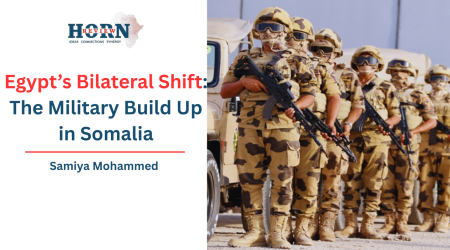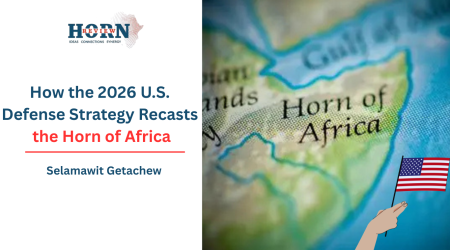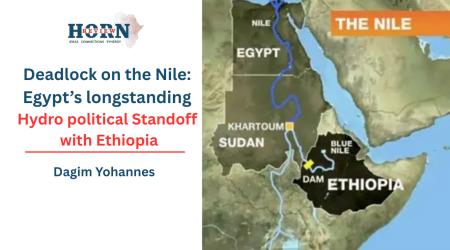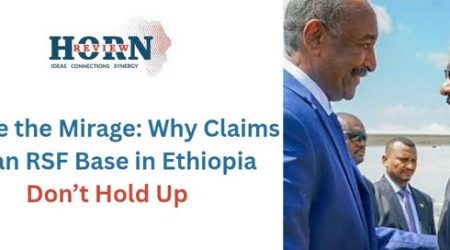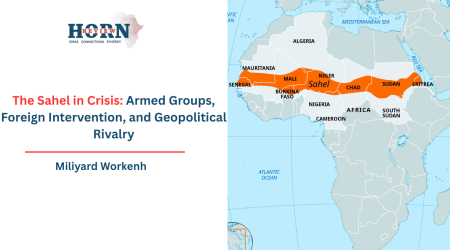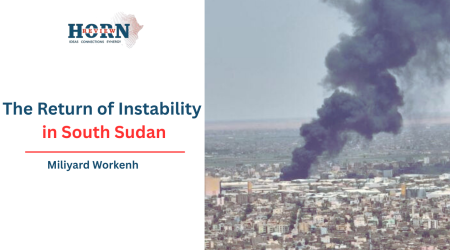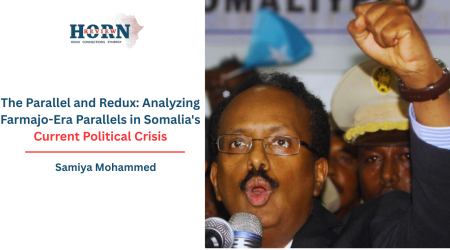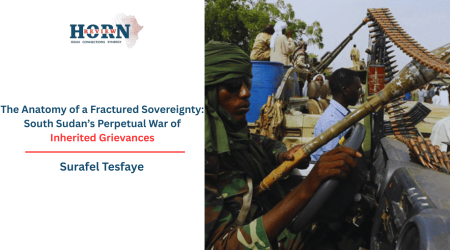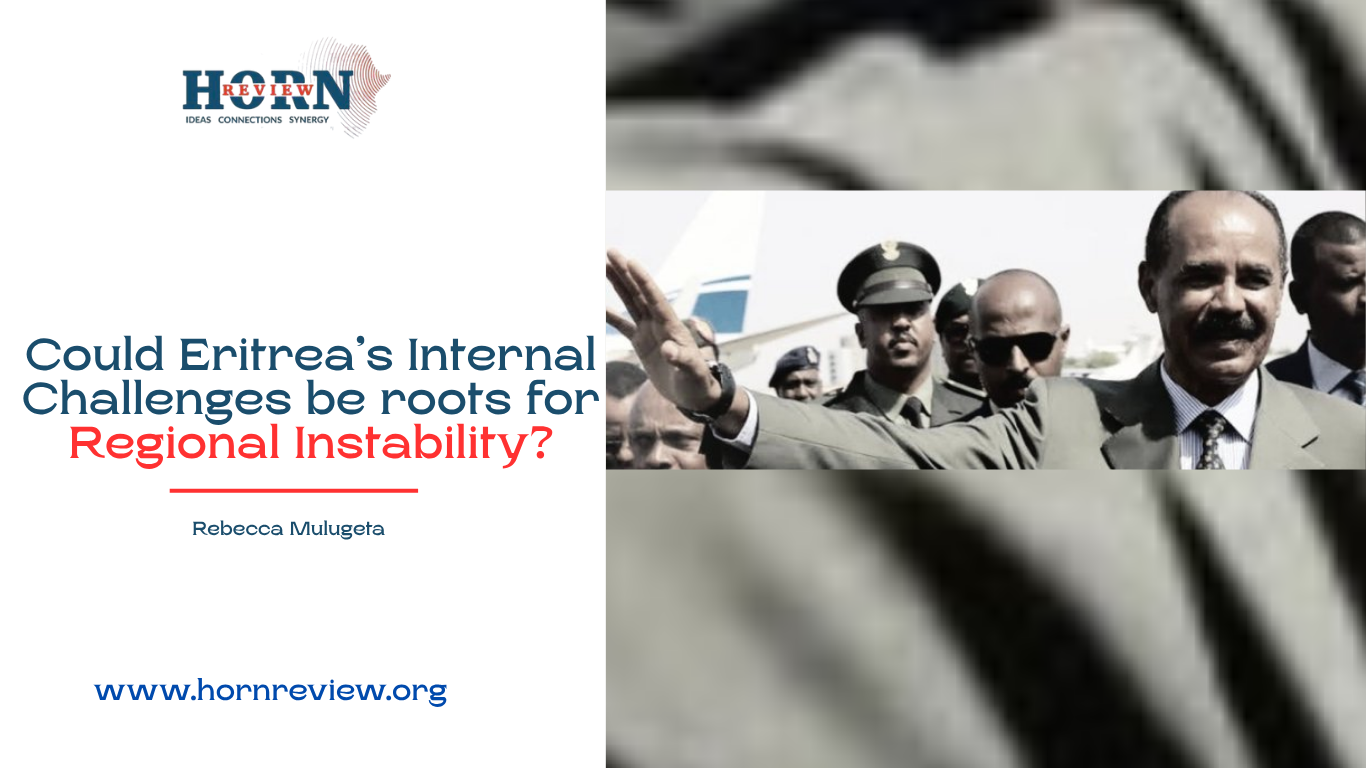
11
Oct
Could Eritrea’s Internal Challenges be roots for Regional Instability?
Eritrea’s internal despotic nature is not only seen in the internal politics of Eritrea, its destabilizing activity in the Horn of Africa, seeing a regime that implants its instruments of domestic control, menace, repression, and militarization to regional statecraft and proxy wars. Under President Isaias Afwerki, the Eritrean government is a totalitarianism, that is unanswerable, with no elections since independence, no constitution in practice, and a system that includes forced military service and opposition repression.
This repressive home ground necessitates the regime projecting authority outside to deflect local pressures and centralize authority. Politically, all reform or liberalization at home has been concealed, particularly through purges of members of People’s Front for Democracy and Justice (PFDJ) parties and silencing independent institutions. This negative control loop is practiced in Eritrea’s foreign conduct rather than following positive regional participation, the country employs war and proxy war to uphold its survivalist, isolationist regime legitimacy.
This repressive bent is evidenced in Eritrea’s actions in the Horn of Africa specifically against Ethiopia. Recent claims that Eritrean troops are armed along the border with Ethiopia, Afar and Tigray tensions, illustrate the regime’s military-first strategy at home. Eritrea’s readiness to deploy troops and missiles embodies Afwerki’s belief that strength and intimidation are keys to control, to divert the interest whether over Eritrean society or regional neighbors. The austere command-and-control culture within the home territory is replicated in externally belligerent postures fueling mistrust as Eritrea shuns observance of regional norms of peace or openness, thus disseminating even more volatility within the Horn, that is, the fruit of the classification in their diaspora communities as well.
Moreover, Eritrea’s execution of covert alliances with armed groups inside Ethiopia, Sudan, and Somalia reflects Afwerki’s inclination for clandestine skillful handling to sustain asymmetric power advantages. These alliances serve not only tactical military goals but also political purposes aligned with Eritrea’s repressive strategy to divide and rule by exploiting fissures in neighboring states’ governance and ethnic compositions. For instance, the hidden support of Eritrea to the Sudanese civil war by sponsoring forces equipped against one party is a reminder of its strategy for the exploitation of violence as a political tool, that is very similar to internal political system oppression to overturn opposition to regime domination. The regime’s foreign support of violence creates proxy warfare allowing the regime to introduce influence into regional politics without a gateway to open diplomacy.
Considering this case, Eritrea’s recent visit into Somalia, particularly its attempt to support Somali internal politics, in the case of supporting former prime minister Abdi Farah Shirdon in the electoral shows Eritrea’s political reach and influencing Somali political structure that could align the strategic interset of Eritrea. The reported attempt by former Prime Minister Abdi Farah Shirdon of Somalia to secure the backing of Eritrean President Isaias Afwerki suggests the aspiration of Eritrea to interfere with Somalia’s fragile democratic mechanisms, the action is not aligned with the democratic doctrine of election since Afwerki himself governs without elections or political opposition, highlighting his regime’s contempt for democratic norms.
Politically and economically, the regime’s controlling domination allows for exploitative boundary-transgressing behavior with the goal of embedding its hold and sustaining its surplus power and undermining the interest of Ethiopia. The hidden fueling swaps that have been documented from Tigray to Eritrean consumers, mediated by regional military permissiveness but sidestepped by Ethiopia’s federal state, demonstrate Eritrea’s use of economic leverage and regional proxies in circumventing diplomatic constraints. This shadow economy mirrors the regime’s internal management approach, with resource dominance forming the basis of power agglomeration, either through state enterprises or enforced conscriptions. Border economic transactions thus become political calculation tools for maintaining Eritrea’s military and political aspirations afloat in the face of global isolation.
This extremely hard-line thinking guiding Eritrea’s external relation also forces its splintered diplomatic stance, including its controversial stance on the Grand Ethiopian Renaissance Dam (GERD). While Sudan is opposed to the dam on political and environmental grounds by national interests, support by Eritrea is symbolic of its pursuit of independence, opposite alignment as a symbol of its peculiar, generally contrarian, autocratic style of regional diplomacy, another way of exercising control and sowing the seeds of discord. The tripartite agreement with Egypt and Somalia is another example that pushing the interest of Ethiopia, recent military and information repression towards Ethiopia is what we see the country doing in internal politics. In general, Eritrea’s internal authoritarianism typified by controlling political freedom and militarism directly contributes and enhances its role in destabilizing the Horn of Africa.
The foreign behaviour of the regime can be seen as an extension of its own internal survival mechanisms applying power through force, exploiting bordering internal instability, employing proxy armies to their command, and avoiding democratic and cooperative norms. This has turned Eritrea into a liberation hero turned regional destabilizing agent whose internal political openness mirrors across the Horn, destabilizing peace, sovereignty, and stability in the long term. To approach Eritrea’s involvement in regional power dynamics, one must first accept that the regime is a product of totalitarian beginnings and has used violence to survive and cling to power.
Allowing denial of the relationship between Eritrea’s internal repression and its belligerent interventionism in the region will result in tenuous peace initiatives in the Horn of Africa. The regime will likely keep on creating instability as a way of ensuring its continuation and expansion at the cost of its neighbors. Therefore, addressing the current crisis in the Horn entails addressing the dynamic relationship between Eritrea’s oppressive domestic policies and its external efforts at destabilization.
By Rebecca Mulugeta, Researcher, Horn Review

